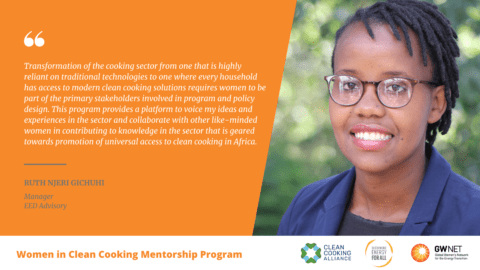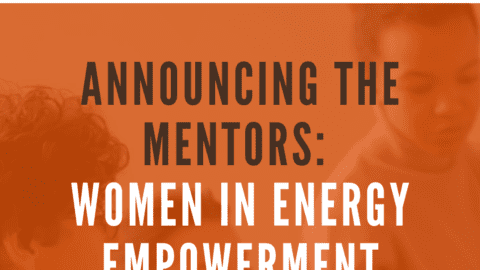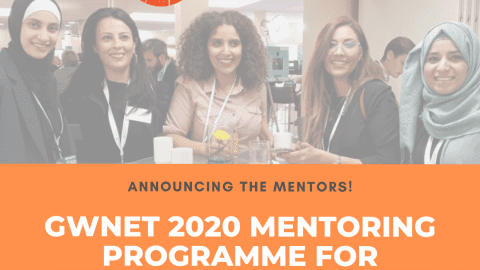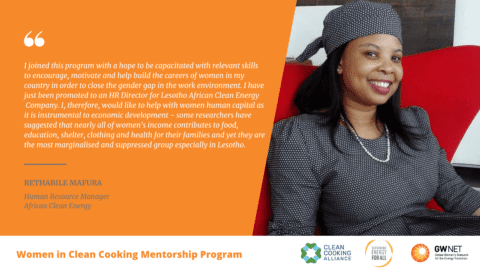GWNET brings you the 5th instalment of the “Meet the Women in the Energy Transition” series which celebrates the work and achievements of the women who are part of GWNET’s 3/2020 Mentoring Programme. This mentoring programme is made up of 26 mentee-mentor tandems, with mentees from over 20 countries. Meet GWNET mentor, Lylian Coelho Ferreira, a Project Manager leading Recycling and Waste Recovery Projects at SUEZ R&V in France. Lylian is an engineer with 15+ years of experience in International Projects and BDM and has worked in different fields such as water, oil & gas and automobile projects. She is also the co-founder and Vice-President of the NGO Womenvai where she aims to accelerate the transition toward a more circular, united and ecological economy.
1) Tell us a little about yourself. What do you love most about what you do?
I’m a French-Brazilian Engineer (a civil engineer by trade) and have worked for several industrial groups as Saipem, Alstom, Vinci-Energies, SUEZ and Dextra.
I currently hold the role of Project Manager and report to the Energy Recovery and Proposal Department at SUEZ Group, where I lead several initiatives.
Previously, I managed projects focused on water and waste infrastructure, automotive and robotics industries, and infrastructure construction.
I have travelled to Panama, Mexico, China, Jordan, Dubai, Angola… always in pursuit of innovation, and always hungry to discover the latest technologies and new cultures.

2) What were your goals when you started working in sustainable energy? Have these evolved?
I’m constantly looking to offer innovative solutions and work on solutions to reuse the unavoidable energy from an energy-from-waste plant to power urban heating networks, fruit farm greenhouses and to cool skating rinks without using fossil fuels and without emitting any additional CO2.
With Womenvai and the SDGs by UNFCCC and the Paris Committee on Capacity-Building (PCCB) network, I’m leading the group to build a list of projects, finance and plan projects in STEM, and create synergy with our co-founders around the world.
I have set targets for the next five years at Womenvai: contributing to the solutions to reduce GHGs and taking part in webinars, workshops and initiatives with the United Nations committee secretariat.
I’m always helping minority inclusion or creating jobs in engineering for young women, I am fully committed; from France all the way to Brazil and from one COP meeting to another.
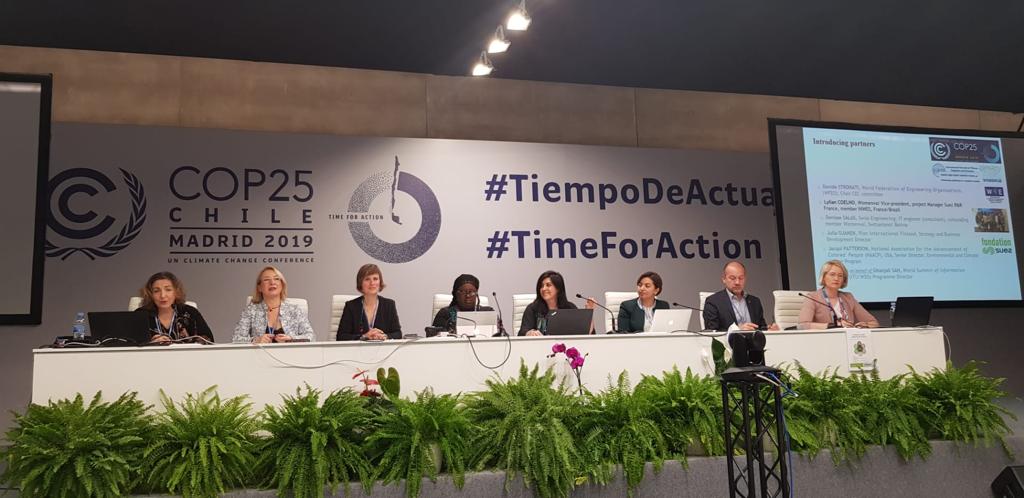
3) How have you adapted to the challenges caused by the COVID-19 pandemic and what advice would you give someone going through similar challenges?
I was glad to be surrounded by such amazing feminists and together we have put together this database which is tracking government responses to #COVID19 all around the world and how they are affecting womxn’s rights and gender equality – if the response is regressive or progressive.
4) What are the opportunities for sustainable energy growth in your country?
As governments grapple with the critical task of dealing with the very real impacts of COVID-19 on the health and welfare of their populations, they are now also developing their economic stimulus packages to assist in economic recovery.
We have outlined a green stimulus framework that contains key criteria that policymakers must consider for any green stimulus intervention in order to successfully address short-term needs with long term benefits. COVID-19 recovery presents both opportunities and threats to enhance our resilience to climate change.
The likely promotion of employment-generating building and infrastructure projects as a key pillar of COVID-19 recovery planning provides a chance to rethink our critical infrastructure, raise standards and develop innovative solutions.

5) What challenges have you faced in the sector? Can you tell us how you overcame (or are overcoming) this challenge(s)?
The development of international projects requires constantly rigour and authority. During my career, the most difficult challenge was balancing my private and professional life in an international environment.
Innovations are constant and to accomplish this, my experience to win the energy market requires constant movement, a good network and never stopping my studies (biomass, geothermal, wind, solar energy, etc.).
6) Why did you join the GWNET Mentorship Programme? What do you hope to achieve?
To share innovation and technology – I love this mentoring.
I hope to build projects and increase women in green technology by creating synergy with mentees around the world.
7) What advice would you give to women hoping to join the sustainable energy sector?
Believe in your dreams and be in contact with women’s networks and IRENA to develop programs in developing countries. Engagement allows communities to develop and share solutions to mobilize volunteers, entrepreneurs, communities and citizens on waste management that would accelerate the transition toward a more circular, united and ecological economy.
Read more about GWNET’s mentoring programmes here.
Become a mentor – what’s in it for you?
GWNET is looking for senior professionals who are eager to make a difference and have a positive impact on a younger woman’s career in the energy sector. With the ever-changing dynamics of the business fields, digitalisation, knowledge and knowledge sharing has become more important than ever. As a mentor, you get the opportunity to give something valuable back to more junior professionals and to expand your own knowledge through your mentees’ perspective. Mentoring will contribute to personal and professional development for both you and your mentee, as well as, shaping the direction of future generations within your field of expertise.
If you are interested in volunteering as a mentor in one of GWNET’s mentoring programmes (which involves approx. 1 – 1.5 hours of engagement per month plus optional participation in knowledge-transfer webinars), kindly fill-in the Mentor Datasheet.




